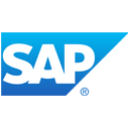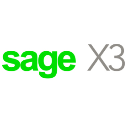ERP software: choosing the right tool for top business management

Digital transformation has transformed the way businesses manage their operations. A key player in this transformation is ERP (Enterprise Resource Planning ) software.
Whether you're a company director, IT professional or manager, this guide is for you!
We'll be taking a deep dive into the fascinating world of ERP, culminating in a comparison of the best ERP software on the market to help you make the most informed choice possible.
Get ready to embark on this digital adventure!
What is ERP software?
Definition of ERP
ERP software is a software solution designed to optimise organisational efficiency by automating and centralising essential business functions.
The ERP system acts as a unified data repository, facilitating the flow of information between different departments such as :
- Finance
- supply chain
- operations
- sales
- reporting
- Manufacturing
- human resources.
By bringing these diverse activities together on a single platform, ERP simplifies and harmonises operations across the company.
ERP modules
An ERP is made up of different modules, each designed for a specific function. These modules work in an integrated way to create a single, consistent source of information within the organisation.
What are the modules of an ERP? Here are a few examples 👉
- estimates and invoicing
- accounting
- CRM
- document management
- stock management
- production,
- purchasing management,
- HR,
- PPM/project management,
- marketing,
- customer service.
💡 To learn more, check out this article dedicated to ERP modules.
The 5 benefits of ERP software
#1 Optimisation of company processes and resources.
ERP software helps the different parts of a business work better together.
👉 For example, when an invoice is paid by a customer, the ERP system automatically updates accounts receivable, income, and adjusts inventory if the invoice relates to goods sold, ensuring up-to-date accounting in real time.
#2 Real-time data access
Important information can be accessed when you need it. This helps you make quick, intelligent decisions.
👉 For example, if a product on promotion is in high demand, real-time access to sales means you can quickly adjust stocks and orders to avoid a shortage.
#3 Improved compliance and data security
ERP software makes it easier for you to comply with laws and regulations, as many of these rules are built into the system.
The system also includes functions such as encryption and passwords, which guarantee the security of your data.
#4 Save time and cut costs
Implementing ERP software can be expensive, but it saves money in the long run.
Your business will run more efficiently, so you won't have to spend extra hours working or correcting errors.
#5 Centralise information and improve collaboration
With ERP software, all your essential data is centralised in one place, making it easier for different departments to work together.
This allows your teams to work in synergy, with a unified view of information, speeding up decision-making and reducing duplication or conflicting tasks.
👉 For example, the sales department and purchasing department can consult the same data about a customer or supplier simultaneously, avoiding misunderstandings or redundant actions, and ensuring a smoother customer experience
The 5 best ERP software packages
1 of 3
 SAP Business One |  Sage X3 ERP |  Odoo |
|---|---|---|
| For all companies | For all companies | For companies with more than 1 employees |
| See software | See software | See software |
| Learn more about SAP Business One | Learn more about Sage X3 ERP | Learn more about Odoo |
SAP
SAP is one of the most recognised ERP systems on the market, offering robust capabilities and adaptability to all business needs.
Features
- Robust: high capacity for processing large volumes of data and transactions.
- Scalable: easy to grow with your business.
- Customisable: can be tailored to meet specific business needs.
Advantages and disadvantages
- Advantages: highly reliable and packed with features.
- Disadvantages: the cost of initial installation and maintenance may not be suitable for a very small business.
Who's it for? Best suited to larger businesses that need advanced functionality and scalability.
Price:
9,900 per licence (free trial version).

SAP Business One
Sage X3
Sage X3 is an ERP software known for its user-friendly interface and comprehensive set of integrated features.
Features
- Intuitive: user-friendly interface.
- Feature-rich : offers a wide range of integrated business solutions enabling companies to unify their operations, eliminate duplication, and improve decision-making through an integrated view of their entire business.
Advantages and disadvantages
- Advantages: a real-time view of data to help businesses make informed decisions quickly.
- Disadvantages: additional modules may be required for specialist uses.
Who's it for? Suitable for both small and medium-sized enterprises (SMEs) and large companies.
Price
From €8,000/user/year

Sage X3 ERP
Archipelia
Archipelia is cloud-based ERP software renowned for its ease of use and intuitive interface.
Features
- Cloudsoftware: runs entirely in the cloud, offering flexibility and ease of access.
- Easy to use: user-friendly interface.
Advantages and disadvantages
- Advantages: affordable and quick to set up.
- Cons: less customisable than other options.
Who should use it? For small and medium-sized businesses.
Prices
- Monthly subscription: €49.99 excluding VAT/month
- Annual subscription (20% off): €39.99/month excluding VAT
- 2-year subscription (- 30%): €34.99 excl. tax/month
Payment in 1 instalment
Odoo
Odoo is an open source ERP software, known for its modularity and high level of customisability.
Features
- Open source : the code is public and can be modified to create a 100% customised tool tailored to your specific needs.
- Highly customisable: the modular structure allows great flexibility.
Advantages and disadvantages
- Advantages: Odoo integrates easily with other systems and applications thanks to its open APIs.
- Disadvantages: requires technical skills for installation and customisation.
Who should use it? Suitable for businesses of all sizes, thanks to its modular nature.
Price
Varies according to the modules chosen, the number of users and the hosting option.
(Free trial and version available)

Odoo
Divalto
Divalto is a complete ERP software thanks to a variety of modules that can be adapted to suit the needs of each company.
Features
- Complete software: covers a wide range of business processes thanks to its modules.
- Integration: Divalto solutions integrate easily with other systems and applications, ensuring business continuity.
Advantages and disadvantages
- Advantages: highly versatile and customisable.
- Disadvantages: Can be complex and require specialist training.
Who's it for? Suitable for both SMEs and large companies.
Price on request
How do you set up an ERP system?
Planning
- Defining objectives : before choosing or implementing an ERP system, it is essential to determine what the organisation hopes to achieve.
- Budget and timetable: establish a projected cost for the entire project and create a detailed timetable to ensure a structured and timely implementation.
- Leadership: strong project leadership is essential for a successful implementation.
- Change management : anticipate resistance and be prepared to put strategies in place to effectively manage organisational change.
Selection
- Research and evaluation : carry out your research to identify potential ERP software. Assess whether they meet your company's requirements in terms of functionality, scalability and price. Don't hesitate to test!
- Communication: maintain open and transparent communication with all the parties involved during this phase.Adopting the software will be all the easier if end-users and managers (IT, financial, operational) are aware of the changes to come and the benefits they can expect!
- Supplier support : make sure you understand the level of support the supplier will provide during and after implementation.
Implementation
- Team building: build your dedicated implementation team with key stakeholders and technical experts.
- Customisation and testing: begin the process of ERP customisation, data migration and initial testing.
- Scalability : ensure that the chosen system can grow with your business to maximise the value of your investment.
Training
- Skills development: provide the team with the appropriate resources and training to enable them to develop the skills they need to use the new ERP system effectively.
Deployment
- Implementation : the integration of ERP into your information system can be done either in phases or as a complete implementation, monitoring for any problems that may arise.
After implementation
- Monitoring and maintenance : monitoring, maintenance and ongoing staff training are essential to ensure that the system continues to meet its objectives.
- ROI analysis : regularly evaluate the system's performance against its objectives, to ensure that it is adding value.
What can you learn from ERP software?
The bottom line is that adopting ERP software can significantly transform the way your business operates, regardless of its size.
It's an investment that can not only increase your operational efficiency, but also provide a clearer overview of your business.
However, like any strategic investment, choosing the right ERP system requires a careful assessment of your specific needs, as well as a thorough understanding of the solutions available on the market.
It's a decision that shouldn't be taken lightly, because the impact or consequences of choosing an ERP system will be felt by the business for a long time to come.
This is because once an ERP system is implemented, it is deeply integrated into the company's operations. Investing time and resources in this process can save you a lot of hassle and maximise the return on your investment.
Article translated from French